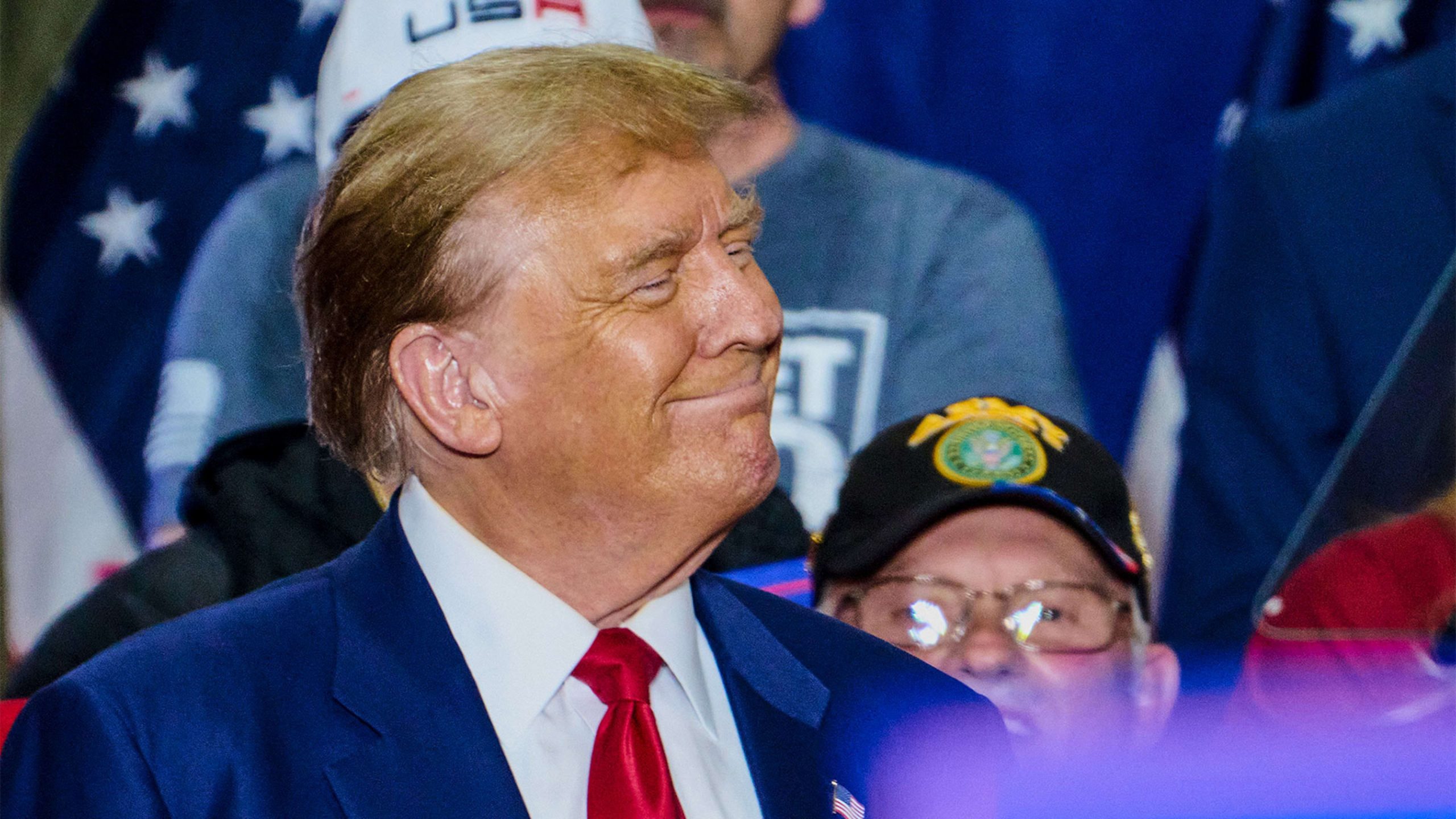Trump Media is the ultimate ‘belief stock’
Trump Media is the ultimate ‘belief stock’
Trump Media, whose stock symbol is DJT (Trump’s initials) has already had several wild ups and downs, and the ride could get even more wild for shareholders.
BY Allan Sloan
The past week has been quite the rollercoaster ride for shareholders of Donald Trump’s newly public Trump Media & Technology Group Corp.
Trump Media, whose stock began trading last week, has bestowed upon Trump billions of dollars of paper wealth created from thin air. And for those who decide to buy stock in the company, which owns Truth Social, the former president’s social media site, the ride could get wilder still.
If you buy shares in Trump Media, you’re not investing in a normal company with anything resembling a normal market valuation. Rather, you’re putting your money into what I call “a belief stock” —one that just might be the ultimate cult company. It’s stock that appears driven by fandom rather than business fundamentals.
There have been many other examples of public companies whose ardent fans have pumped up stock prices, such as Apple and Tesla, but nothing in recent memory comes anywhere close to Trump Media.
Trump Media’s market valuation—roughly 1,600 times its annual revenue, at Wednesday’s closing price—makes no financial sense that I can see. By comparison, the stock of Facebook’s owner trades at about eight times revenues, and Google’s owner trades at six times.
Both of those companies are highly profitable, while Trump Media isn’t even close to making money. The company said in a recent Securities & Exchange Commission (SEC) filing that, “TMTG expects to incur operating losses for the foreseeable future.”
Trump Media, whose stock symbol is DJT (Trump’s initials) has already had several wild ups and downs, including a 21% plunge on Monday after it announced that it lost $58.2 million last year on revenues of $4.1 million.
No, that revenue number isn’t a typographical mistake. The huge loss and small revenue numbers disclosed on Monday were no surprise to anyone who took even a cursory look at the mountains of documents filed with the SEC by Trump Media and Digital World Acquisition Corp., the company with which Trump Media merged to go public.
Perhaps most stunning is the 84 pages—that’s right, 84 pages—of risk factors filed in the companies’ 694-page February 16 going-public document. Those endless risk recitations, which run from Page 63 to Page 146, are an attempt by lawyers to make sure that if DJT stock doesn’t do well, investors can’t say they weren’t warned.
Monday’s 21% price drop came a week after the stock’s 35% rise on its first day as a public company. As Fast Company’s Clint Rainey noted at the time, DJT’s stock price makes no sense compared with the prices of other buzz-worthy initial public offering companies like Reddit or even WeWork.
Why is this happening? Because Trump Media’s market value—which was $6.59 billion at Wednesday’s closing price—has nothing to do with its business or its prospects. It has to do with whether you believe in Donald Trump (or perhaps believe that if you own a lot of shares, you can curry favor with him if he were to become president again)—which is why I call it a belief stock.
But, whether or not you believe in him, the one thing that you’d better believe is that Trump, who’s been stressed financially by lawsuits, is likely going to use his Trump Media stake to raise money for himself.
At Wednesday’s closing price, Trump’s 78.75 million DJT shares had a market value of $3.8 billion. He’s entitled to 36 million more shares (worth $1.8 billion at Wednesday’s price) in stages over the next three years if DJT stock doesn’t fall below $17.50, a little over a third of Wednesday’s $48.81 closing price. (It was trading below $47 as of midday Thursday.)
At first glance, you might think that Trump can’t sell or borrow against his DJT holding until September, since a so-called lockup provision bars him from doing so for six months after DJT went public. However, if you read a bit deeper into the filings, you see that he can start cashing in earlier with permission from Trump Media’s board of directors, which seems unlikely to tell him no.
As legendary investor Warren Buffett once wrote to Berkshire Hathaway shareholders (who include me), “When seeking directors, CEOs don’t look for pit bulls. It’s the cocker spaniels that get taken home.”
The cocker spaniels on Trump Media’s board—who include Trump’s eldest son and several of Trump’s political associates—seem especially tame. (Trump is also now suing his cofounders to ensure they can’t hold shares or appoint board members.) So don’t be surprised to read someday soon that Trump has raised a chunk of cash by selling or borrowing against some of his DJT stock. That news will doubtless send the share price falling.
In fact, Wednesday’s closing price, which isn’t exactly cheap, is down 39% from its high on March 26, Trump Media’s first day of trading publicly.
I don’t know where DJT’s stock price goes from here—no one does. But if Trump’s personal history is a guide, it’s unlikely to do well over the long term.
Why do I say that? Because in addition to what I’ve shown you about DJT’s huge price relative to its mega-modest business—and its self-described dim outlook for making profits anytime soon—Trump has a less-than-inspiring record as a fiduciary.
Trump businesses have filed for six Chapter 11 bankruptcies over the years.
Three New Jersey casinos that he once owned each filed for bankruptcy once, and the company into which they were then consolidated filed for bankruptcy twice while Trump was running it. (It went broke a third time, but he wasn’t running it by then.) His sixth bankruptcy was Trump Plaza Hotel in New York City.
I don’t think that Trump Media, which got about $300 million from its merger with Digital World Acquisition Corp. is likely to run out of cash anytime soon.
But even so, if you consider Trump Media’s numbers along with Trump’s history, you see that buying DJT stock at anything close to its current price looks like a sucker’s bet. It’s sure not an investment.
ABOUT THE AUTHOR
(22)



